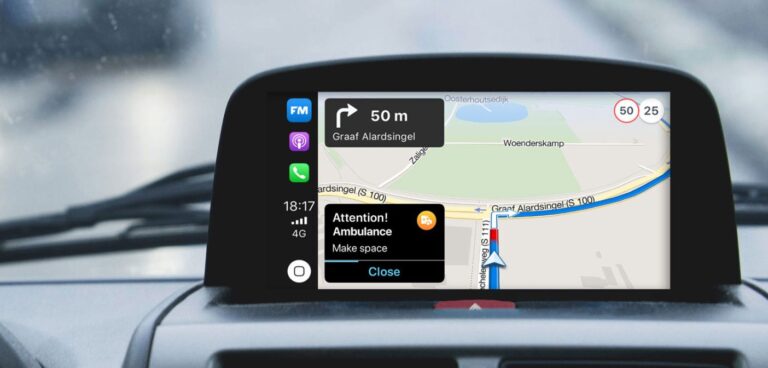The Netherlands is set to become the first European country to adopt technology that enables private cars or navigation systems to warn motorists of an approaching vehicle with flashing lights and sirens.
Over the next three years, the Ministry of Infrastructure and Water Management will work with six car and navigation system manufacturers, namely ANWB, Flitsmeister, Hyundai, Inrix, Kia and TomTom, to deliver warnings to drivers if a car with flashing lights or sirens is nearby.
The warnings will indicate the type of vehicle and the direction from which it is approaching. To begin with, only ambulances will prompt a notification, but there are plans to add other vehicles later this year.
The collaboration, called Safety Priority Services (SPS), has been established with the aim of improving road safety and digital traffic management.
Drivers will be warned according to a list of criteria, which will be signed off by the Dutch government to avoid needless distractions. This includes potential hazards, such as wrong-way drivers, roadworks, slippery roads, vehicle inspectors and more.
In the longer term, there are plans to investigate whether the service can be used to help drivers avoid dangerous incidents in areas such as school zones.
Gerardus Harbers, Dutch minister for infrastructure and water management, said: “Some 98% of motorists now use digital information while driving.
“In addition, pilots and projects show that providing warnings while driving has a positive effect on road safety.
“I would like to embrace these developments, in part because drivers of cars and trucks, for example, indicate that they appreciate such warnings and increasingly rely on them.
“That’s why we will now start our collaboration with six organisations: we will ensure that they safely provide the right information to drivers.”
With SPS, the Netherlands is preparing for EU legislation, which should come into effect in 2025.
The six companies plan to combine their data with information provided by the National Data Portal for Road Traffic (NDW).
The organisations should offer warnings to drivers about obstacles on their journey, whereas the NDW data contains information about existing road regulations.
The collaborators then plan to share their collected data with NDW, after securing consent from users, and provide feedback to improve the service.





